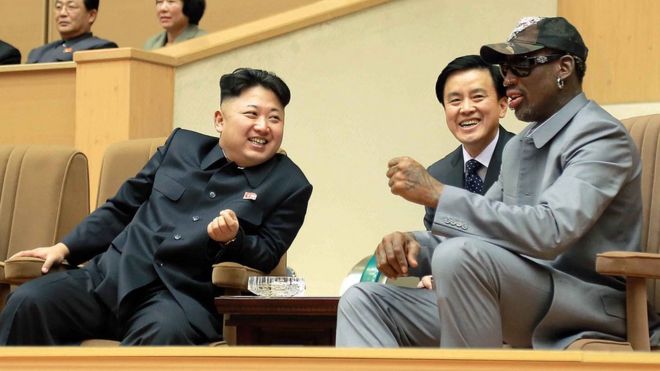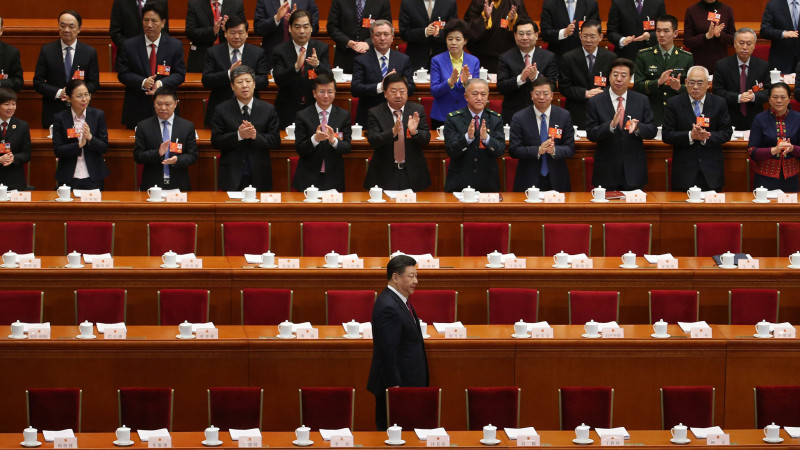Previously, on this blog, I’ve written critically of US President Donald Trump’s approach to the ongoing North Korean crisis. In short, I’ve believed Trump’s bellicose
statements and tweets were the wrong track to use against a weak and insecure
Kim regime. Threats of force play into the longstanding narrative that the US seeks
to overthrow Kim and has imperial ambitions on the Korean Peninsula, which only
reinforces Kim’s desire to advance the nation’s nuclear program and makes that program ever more popular among north Korean citizens. And more generally, history
has shown that olive branches, of various shapes and sizes, have been more
effective in getting North Korean to the negotiating table. While getting
the North Koreans to the table isn’t an final end goal, it’s one small goal
along a line of many different goals, leading, I would hope, to a negotiated deal of some sort
between the US and North Korea (and possibly also South Korea and China).
The latest news, which I’m sure you’ve all heard about by
now, is that Kim has made an offer—via South Korea—to meet Trump later this
year. Whether this is the product of American actions (sanctions, military
muscle in the area) and statements, diplomatic moves by South Korea, dumb luck,
or all of the above, it doesn’t matter. What matters most is that Trump is
fully on board with the diplomatic track on North Korea.
Yes, it’s true that members of his administration have done
quite a bit of behind the scenes diplomatic legwork over the last year. Most notably,
Rex Tillerson, among others, has spent time strengthening the US-South Korea-Japan coalition, in the hopes that a united front can deter Kim from further
provocative moves, get him to back down, and go the negotiating route. The
problem is that Trump has sent mixed messages in response to Tillerson’s
efforts, saying, on the one hand, that he doesn’t want war, but, at the same
time, expressing his belief that Tillerson was wasting his time.
For now, Trump deserves some kudos. In a chaotic and very unconventional
way, he’s gotten Kim to reach out to the US. This is a very good development. It seems
like it should be self-evident, though in this political climate I fear it’s
not: Lowering tensions, reducing the likelihood for war on the Korean peninsula,
is good for the US and North Korea, sure, but also South Korea, Japan, China, and Russia, as well as Asia more broadly and the world. And while Trump critics,
those on the left and right, worry that the run-up to the meeting and the
meeting itself offer ample opportunities for Trump to inflame relations with North Korea,
let’s be fair. The fact that Ttrump got Kim to make the first move is a clear
win for Trump and the US.
Moreover, Trump has bucked the conventional wisdom that “too
much prep” needs to be done, on both sides, before a Trump-Kim meeting. The prep
argument has always seemed like an excuse to prevent the US from engaging in
high-level talks. I'm not dismissing some pre-diplomacy legwork as necessary, to be clear. But I do believe that most of those who espouse this logic are making it not because of comitted stance in favor of preparedness but because they have an overly negative, harsh view of Trump (his personality, intellect, etc.), which may or may not have any basis in reality. Besides, talking just to talk—the fear among some, that the
talks will therefore be aimless and thus pointless—isn’t necessarily a bad thing; it can
help establish an improved personal relationship between Kim and Trump and pave
the way for better broader North Korea-US ties. Think of it this way: by May
2018, Kim may have met the US president more times he's met with Xi Jinping, China's president.
Furthermore, Trump, it appears, has discarded the notion—or at
a minimum, he’s not constrained by the notion—that meeting with Kim accords him
way too much prestige. That’s mostly hooey. Yes, a summit with Trump will probably
enhance kim’s standing domestically, inside of North Korea, as North Korean citizens
see him together, on the same stage, with the president of the US. But
internationally? Probably not. Which state(s) will change it’s views of Kim and North Korea after one lone set of face-to-face talks with Trump? Consider this: Did the Iran nuclear deal radically alter how the international community sees
Iran? Nope. The world, by and large, still sees Iran as a human rights violator
and regional instigator of violence and instability—and that’s despite the almost
unanimous recognition that Iran is complying with the deal. I’d expect something
similar with respect to North Korea.
But here’s the other thing to think about: Should Trump care
that a meeting with Kim might enhance Kim’s standing and prestige? Somewhat, but
that shouldn’t be a dominant focus, right? But that’s not what the critics are
suggesting, at least implicitly. That’s preposterous, though. It’s the cutting
off of one’s nose to spite one’s face syndrome, actually. It’s far more important
to make diplomatic progress with North Korea than be concerned about how Kim is viewed
and treated domestically and globally. And honestly, if Kim does elevate his
image in the world, it’s not from one singular meeting with the US, but from
consistently complying with the rules and norms and laws of the extant international system. And
that should be his—and any dictator’s—reward for coming out of the cold and
meaningfully engaging with the world.


